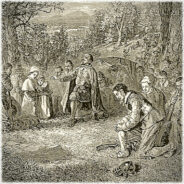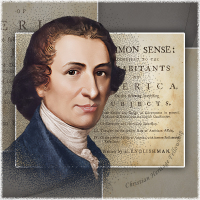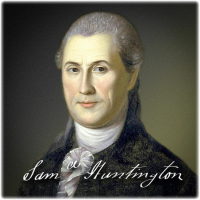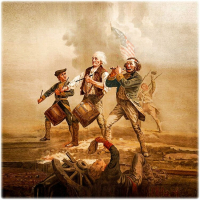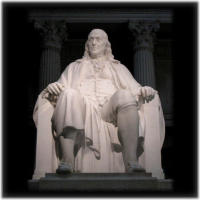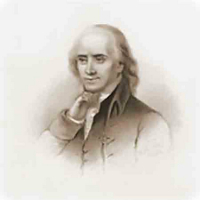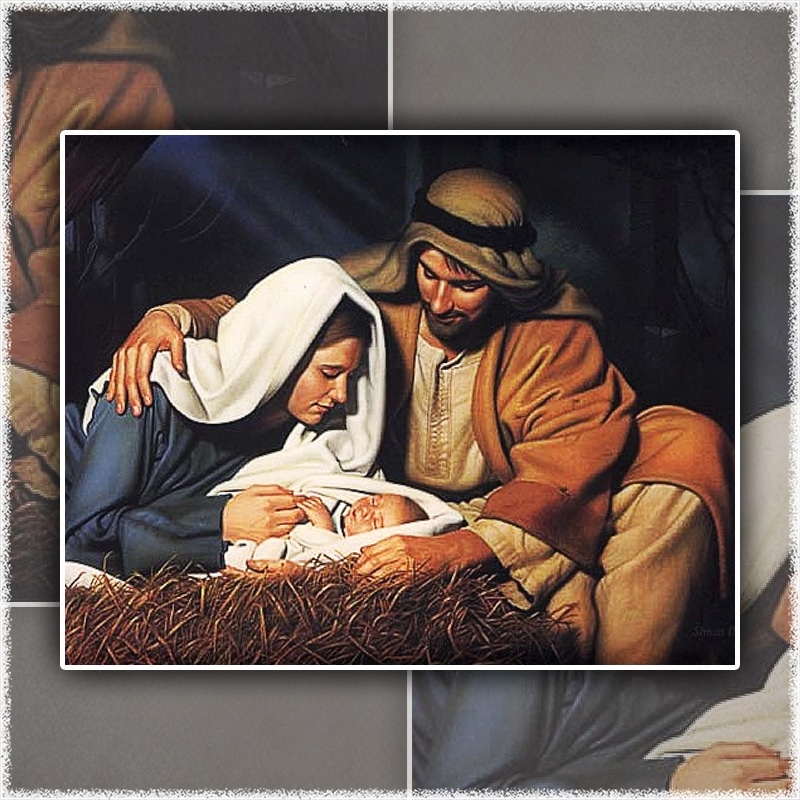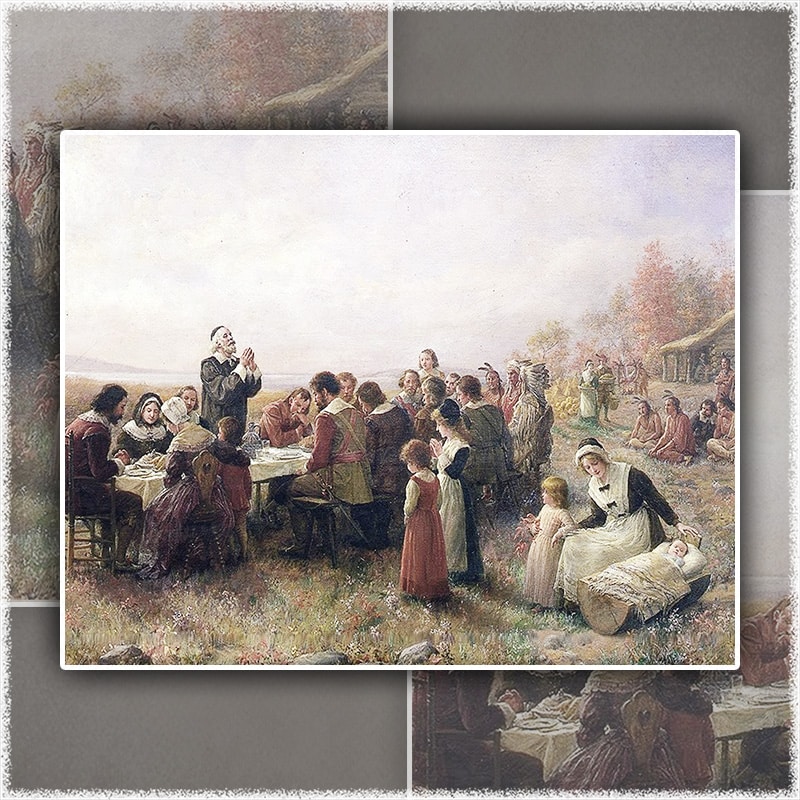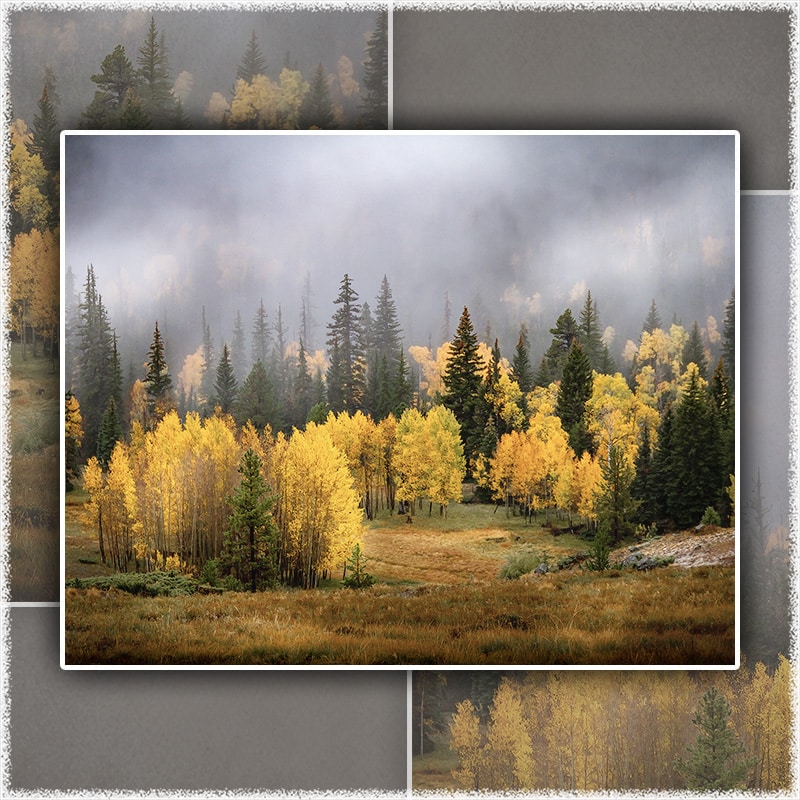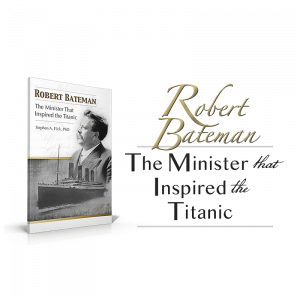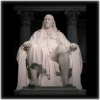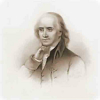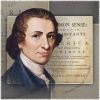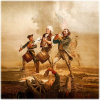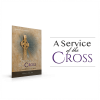Christianity and America’s First Constitution
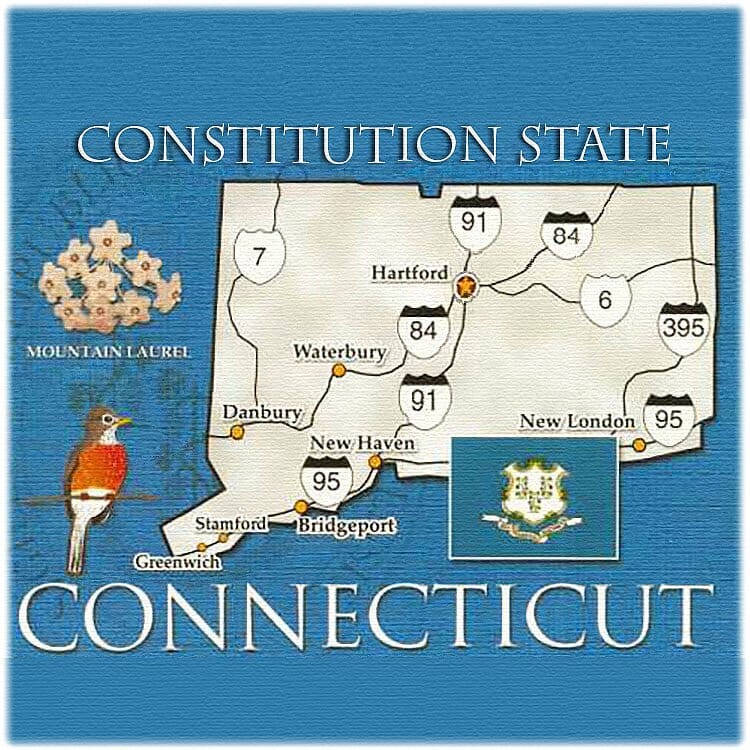
- 29
- 29shares
Have you ever seen a car license plate from the state of Connecticut? If you have, do you remember the slogan emblazoned on it? Connecticut is called the "Constitution State," but very few of us know why it has been given this title. The reason Connecticut is called the Constitution State is because of a Christian minister and his belief that the Bible contains all of the principles necessary for happy contented living including the Christian's involvement in matters of government or politics. The pastor's name was Thomas Hooker. He was born on July 7, 1586 in Marfield, England. Educated within the Puritan tradition at the University of Cambridge, Hooker became a lecturer at Emmanuel College, and after being persecuted for his evangelical Puritan beliefs, decided to settle in New England. There he assumed the pastorate of the church in Newton, Massachusetts (present-day Cambridge).
In January of 1639,[1] three towns of a new colony that had come to be called Connecticut charged the General Court with the responsibilities of drafting a Constitution for their colony. Four years earlier (1635), Rev. Thomas Hooker moved with members of his congregation at Newton, Massachusetts (present-day Cambridge) to a site along the Connecticut River and named their new town, Hartford. For a number of years, members of his congregation longed for better land for farming, and Hartford became the new home for the congregation and their pastor. Along with Hartford, two other neighboring towns emerged outside the boundaries provided for in the charter of Massachusetts. To provide adequate government for these towns outside of Massachusetts, representatives were chosen from the three towns and a General Court was convened at Hartford.
As was customary to initiate such proceedings with Christian spirituality, Rev. Hooker preached a powerful sermon to the elected framers of the new constitution. In it, he stated that "the foundation of all authority is laid . . . in the free consent of the people" and that "the privilege of election . . . belongs to the people."[2] Unlike the government of Massachusetts, Rev. Hooker advocated that all citizens should be granted the opportunity to vote for elected government officials a privilege that should not be reserved for church members only. Under the influence of Rev. Hooker, The Fundamental Orders, or constitution, of the new colony of Connecticut became the first written constitution in Western civilization, and for this reason, Connecticut is called "The Constitution State." In addition, this document was the prototype of the United States Constitution. A reading of the Fundamental Orders of Connecticut presented below will demonstrate that America's Founding Fathers never believed in "separation of Church and state" as is advocated today! In fact, it is not possible to validate the Supreme Court's arbitrary "separation of Church and state" mantra from the pages of American history. When Justice Hugo used this expression the majority opinion of Everson VS Board of Education (1947), all branches of American government were already well-documented against such a finding—including the Supreme Court. By perusing the following paragraphs, the candid reader will find that the historical facts behind the origin of America's First Constitution (The Fundamental Orders of Connecticut) and the text of this Constitution bear ample witness against Justice Black and his colleagues and all who seek to erase America's Christian history.
The Fundamental Orders of Connecticut
or as much as it hath pleased Almighty God by the wise disposition of his divine providence so to order and dispose of things that we the Inhabitants and Residents of Windsor, Hartford and Wethersfield are now cohabiting and dwelling in and upon the River of Connectecotte [Connecticut] and the lands thereunto adjoining; and well knowing where a people are gathered together the word of God requires that to maintain the peace and union of such a people there should be an orderly and decent Government established according to God, to order and dispose of the affairs of the people at all seasons as occasion shall require; do therefore associate and conjoin ourselves to be as one Public State or Commonwealth; and do for ourselves and our successors and such as shall be adjoined to us at any time hereafter, enter into Combination and Confederation together, to maintain and preserve the liberty and purity of the Gospel of our Lord Jesus which we now profess, as also, the discipline of the Churches, which according to the truth of the said Gospel is now practiced amongst us; as also in our civil affairs to be guided and governed according to such Laws, Rules, Orders and Decrees as shall be made, ordered, and decreed as followeth:
1. It is Ordered, sentenced, and decreed, that there shall be yearly two General Assemblies or Courts, the one the second Thursday in April, the other the second Thursday in September following; the first shall be called the Court of Election, wherein shall be yearly chosen from time to time, so many Magistrates and other public Officers as shall be found requisite: Whereof one to be chosen Governor for the year ensuing and until another be chosen, and no other Magistrate to be chosen for more than one year: provided always there be six chosen besides the Governor, which being chosen and sworn according to an Oath recorded for that purpose, shall have the power to administer justice according to the Laws here established, and for want thereof, according to the Rule of the Word of God; which choice shall be made by all that are admitted freemen and have taken the Oath of Fidelity, and do cohabit within this Jurisdiction having been admitted Inhabitants by the major part of the Town wherein they live or the major part of such as shall be then present.
2. It is Ordered, sentenced, and decreed, that the election of the aforesaid Magistrates shall be in this manner: every person present and qualified for choice shall bring in (to the person deputed to receive them) one single paper with the name of him written in it whom he desires to have Governor, and he that hath the greatest number of papers shall be Governor for that year. And the rest of the Magistrates or public officers to be chosen in this manner: the Secretary for the time being shall first read the names of all that are to be put to choice and then shall severally nominate them distinctly, and every one that would have the person nominated to be chosen shall bring in one single paper written upon, and he that would not have him chosen shall bring in a blank; and every one that hath more written papers than blanks shall be a Magistrate for that year; which papers shall be received and told by one or more that shall be then chosen by the court and sworn to be faithful therein; but in case there should not be six chosen as aforesaid, besides the Governor, out of those which are nominated, than he or they which have the most written papers shall be a Magistrate or Magistrates for the ensuing year, to make up the aforesaid number.
3. It is Ordered, sentenced, and decreed, that the Secretary shall not nominate any person, nor shall any person be chosen newly into the Magistracy which was not propounded in some General Court before, to be nominated the next election; and to that end it shall be lawful for each of the Towns aforesaid by their deputies to nominate any two whom they conceive fit to be put to election; and the Court may add so many more as they judge requisite.
4. It is Ordered, sentenced, and decreed, that no person be chosen Governor above once in two years, and that the Governor be always a member of some approved Congregation, and formerly of the Magistracy within this Jurisdiction; and that all the Magistrates, Freemen of this Commonwealth; and that no Magistrate or other public officer shall execute any part of his or their office before they are severally sworn, which shall be done in the face of the court if they be present, and in case of absence by some deputed for that purpose.
5. It is Ordered, sentenced, and decreed, that to the aforesaid Court of Election the several Towns shall send their deputies, and when the Elections are ended they may proceed in any public service as at other Courts. Also the other General Court in September shall be for making of laws, and any other public occasion, which concerns the good of the Commonwealth.
6. It is Ordered, sentenced, and decreed, that the Governor shall, either by himself or by the Secretary, send out summons to the Constables of every Town for the calling of these two standing Courts one month at least before their several times: And also if the Governor and the greatest part of the Magistrates see cause upon any special occasion to call a General Court, they may give order to the Secretary so to do within fourteen days warning: And if urgent necessity so require, upon a shorter notice, giving sufficient grounds for it to the deputies when they meet, or else be questioned for the same; And if the Governor and major part of Magistrates shall either neglect or refuse to call the two General standing Courts or either of them, as also at other times when the occasions of the Commonwealth require, the Freemen thereof, or the major part of them, shall petition to them so to do; if then it be either denied or neglected, the said Freemen, or the major part of them, shall have the power to give order to the Constables of the several Towns to do the same, and so may meet together, and choose to themselves a Moderator, and may proceed to do any act of power which any other General Courts may.
7. It is Ordered, sentenced, and decreed, that after there are warrants given out for any of the said General Courts, the Constable or Constables of each Town, shall forthwith give notice distinctly to the inhabitants of the same, in some public assembly or by going or sending from house to house, that at a place and time by him or them limited and set, they meet and assemble themselves together to elect and choose certain deputies to be at the General Court then following to agitate the affairs of the Commonwealth; which said deputies shall be chosen by all that are admitted Inhabitants in the several Towns and have taken the oath of fidelity; provided that none be chosen a Deputy for any General Court which is not a Freeman of this Commonwealth. The aforesaid deputies shall be chosen in manner following: every person that is present and qualified as before expressed, shall bring the names of such, written in several papers, as they desire to have chosen for that employment, and these three or four, more or less, being the number agreed on to be chosen for that time, that have the greatest number of papers written for them shall be deputies for that Court; whose names shall be endorsed on the back side of the warrant and returned into the Court, with the Constable or Constables' hand unto the same.
8. It is Ordered, sentenced, and decreed, that Windsor, Hartford, and Wethersfield shall have power, each Town, to send four of their Freemen as their deputies to every General Court; and Whatsoever other Town shall be hereafter added to this Jurisdiction, they shall send so many deputies as the Court shall judge meet, a reasonable proportion to the number of Freemen that are in the said Towns being to be attended therein; which deputies shall have the power of the whole Town to give their votes and allowance to all such laws and orders as may be for the public good, and unto which the said Towns are to be bound.
9. It is Ordered, sentenced, and decreed, that the deputies thus chosen shall have power and liberty to appoint a time and a place of meeting together before any General Court, to advise and consult of all such things as may concern the good of the public, as also to examine their own Elections, whether according to the order, and if they or the greatest part of them find any election to be illegal they may seclude such for present from their meeting, and return the same and their reasons to the Court; and if it be proved true, the Court may fine the party or parties so intruding, and the Town, if they see cause, and give out a warrant to go to a new election in a legal way, either in part or in whole. Also the said deputies shall have power to fine any that shall be disorderly at their meetings, or for not coming in due time or place according to appointment; and they may return the said fines into the Court if it be refused to be paid, and the Treasurer to take notice of it, and to escheat or levy the same as he does other fines.
10. It is Ordered, sentenced, and decreed, that every General Court, except such as through neglect of the Governor and the greatest part of the Magistrates the Freemen themselves do call, shall consist of the Governor, or some one chosen to moderate the Court, and four other Magistrates at least, with the major part of the deputies of the several Towns legally chosen; and in case the Freemen, or major part of them, through neglect or refusal of the Governor and major part of the Magistrates, shall call a Court, it shall consist of the major part of Freemen that are present or their deputies, with a Moderator chosen by them: In which said General Courts shall consist the supreme power of the Commonwealth, and they only shall have power to make laws or repeal them, to grant levies, to admit of Freemen, dispose of lands undisposed of, to several Towns or persons, and also shall have power to call either Court or Magistrate or any other person whatsoever into question for any misdemeanor, and may for just causes displace or deal otherwise according to the nature of the offense; and also may deal in any other matter that concerns the good of this Commonwealth, except the election of Magistrates, which shall be done by the whole body of Freemen. In which Court the Governor or Moderator shall have power to order the Court, to give liberty of speech, and silence unseasonable and disorderly speakings, to put all things to vote, and in case the vote be equal to have the casting voice. But none of these Courts shall be adjourned or dissolved without the consent of the major part of the Court.
11. It is Ordered, sentenced, and decreed, that when any General Court upon the occasions of the Commonwealth have agreed upon any sum, or sums of money to be levied upon the several Towns within this Jurisdiction, that a committee be chosen to set out and appoint what shall be the proportion of every Town to pay of the said levy, provided the committee be made up of an equal number out of each Town.
14th January, 1638, the 11 Orders above said are voted.
America deserves to know its true heritage.
Please contribute today!
Related Articles
[1] Contemporary chronology places the ratification of The Fundamental Orders on January 24, 1639. The Julian dating system being used by the English at that time placed the convening of this General Court ten days prior to the contemporary date of January 24. However, Britain changed to the Gregorian calendar, which we use today, in 1751. When the Gregorian calendar was accepted for use in 1751, 11 days had to be added to their dates to come up to the equivalent Gregorian dates, but in 1639, they were 10 days behind the Gregorian calendar.
[2] Rusten, The One Year Book of Christian History, 379.
* Fundamental Orders of Connecticut Christianity and America's First Constitution *
* Fundamental Orders of Connecticut Christianity and America's First Constitution *
* Fundamental Orders of Connecticut Christianity and America's First Constitution *
* Fundamental Orders of Connecticut Christianity and America's First Constitution *
* Fundamental Orders of Connecticut Christianity and America's First Constitution *
* Fundamental Orders of Connecticut Christianity and America's First Constitution *
* Fundamental Orders of Connecticut Christianity and America's First Constitution *
* Fundamental Orders of Connecticut Christianity and America's First Constitution *
* Fundamental Orders of Connecticut Christianity and America's First Constitution *
* Fundamental Orders of Connecticut Christianity and America's First Constitution *
* Fundamental Orders of Connecticut Christianity and America's First Constitution *
* Fundamental Orders of Connecticut Christianity and America's First Constitution *
* Fundamental Orders of Connecticut Christianity and America's First Constitution *
* Fundamental Orders of Connecticut Christianity and America's First Constitution *
* Fundamental Orders of Connecticut Christianity and America's First Constitution *
* Fundamental Orders of Connecticut Christianity and America's First Constitution *
* Fundamental Orders of Connecticut Christianity and America's First Constitution *
* Fundamental Orders of Connecticut Christianity and America's First Constitution *
* Fundamental Orders of Connecticut Christianity and America's First Constitution *
* Fundamental Orders of Connecticut Christianity and America's First Constitution *
* Fundamental Orders of Connecticut Christianity and America's First Constitution *
* Fundamental Orders of Connecticut Christianity and America's First Constitution *
* Fundamental Orders of Connecticut Christianity and America's First Constitution *
* Fundamental Orders of Connecticut Christianity and America's First Constitution *
* Fundamental Orders of Connecticut Christianity and America's First Constitution *
* Fundamental Orders of Connecticut Christianity and America's First Constitution *
* Fundamental Orders of Connecticut Christianity and America's First Constitution *
* Fundamental Orders of Connecticut Christianity and America's First Constitution *
* Fundamental Orders of Connecticut Christianity and America's First Constitution *
* Fundamental Orders of Connecticut Christianity and America's First Constitution *
* Fundamental Orders of Connecticut Christianity and America's First Constitution *
* Fundamental Orders of Connecticut Christianity and America's First Constitution *
* Fundamental Orders of Connecticut Christianity and America's First Constitution *
* Fundamental Orders of Connecticut Christianity and America's First Constitution *
* Fundamental Orders of Connecticut Christianity and America's First Constitution *
* Fundamental Orders of Connecticut Christianity and America's First Constitution *
* Fundamental Orders of Connecticut Christianity and America's First Constitution *
* Fundamental Orders of Connecticut Christianity and America's First Constitution *
- 29
- 29shares

